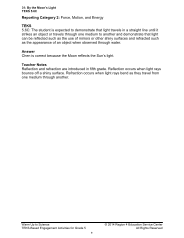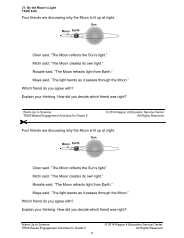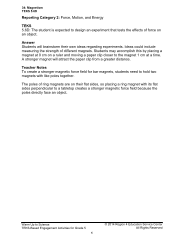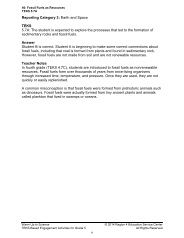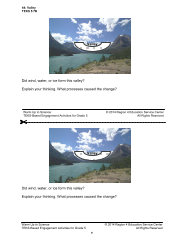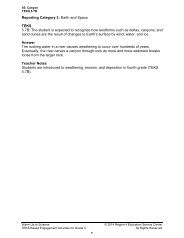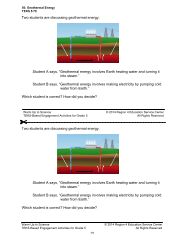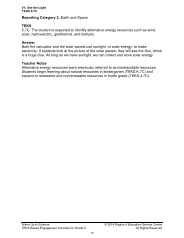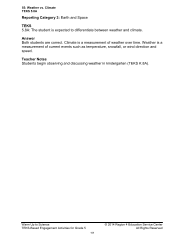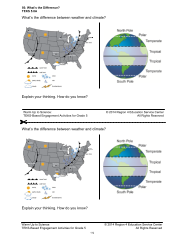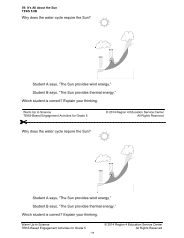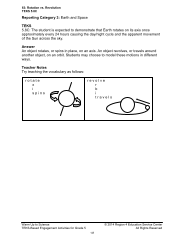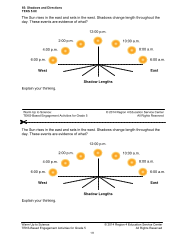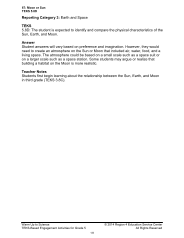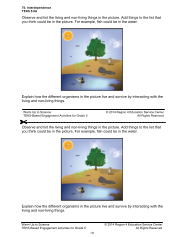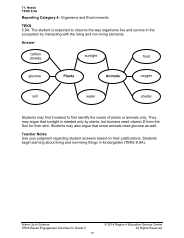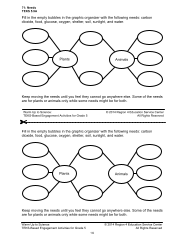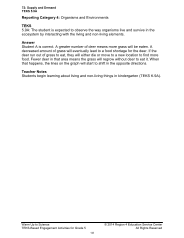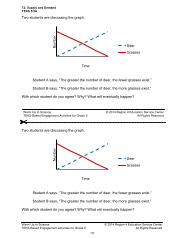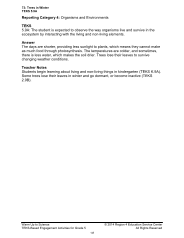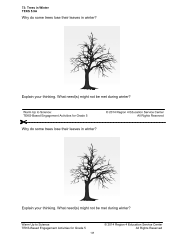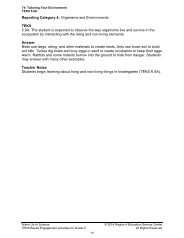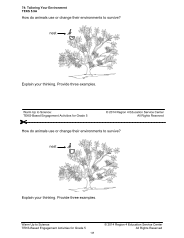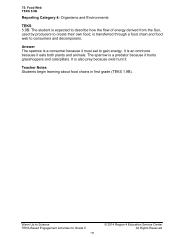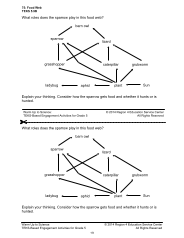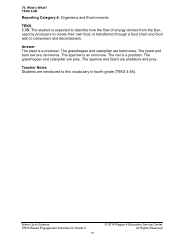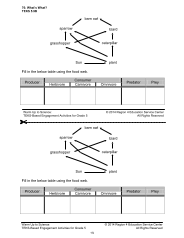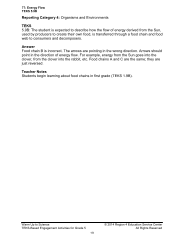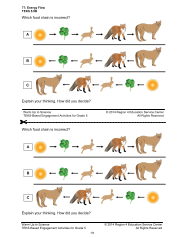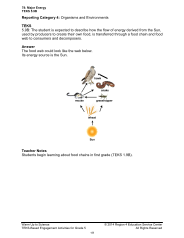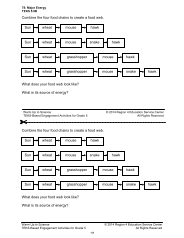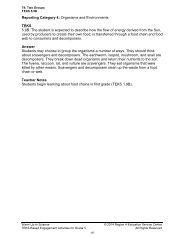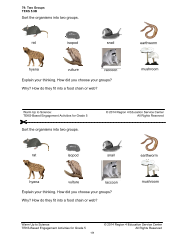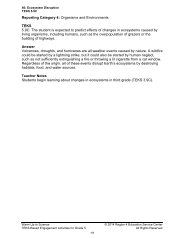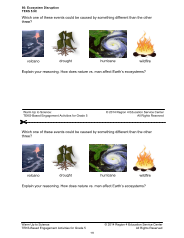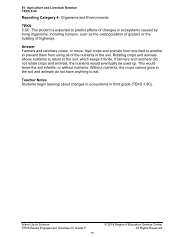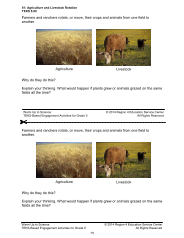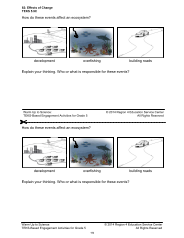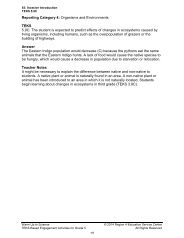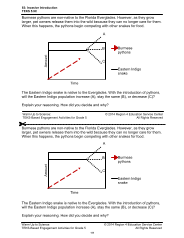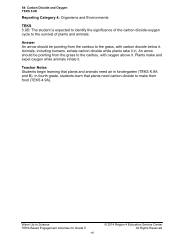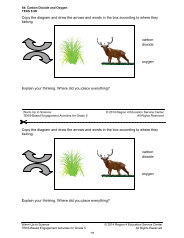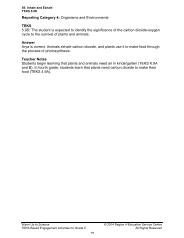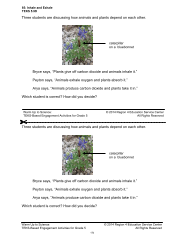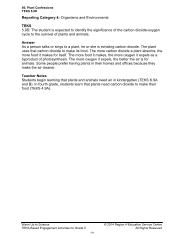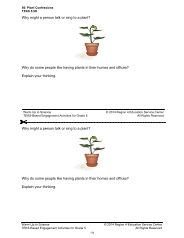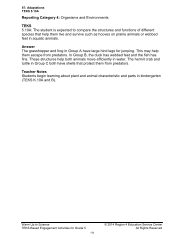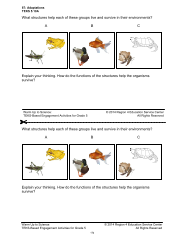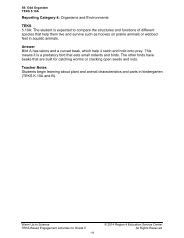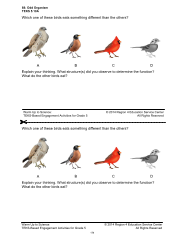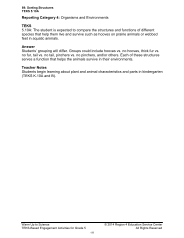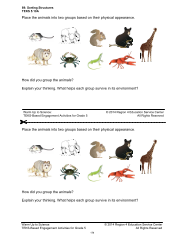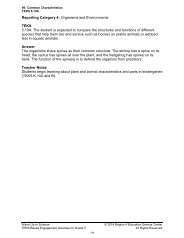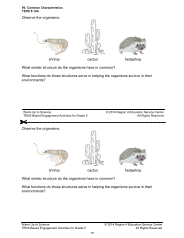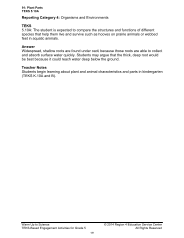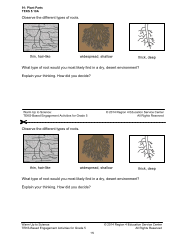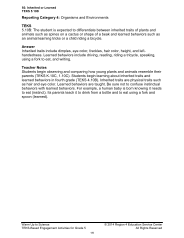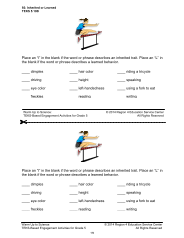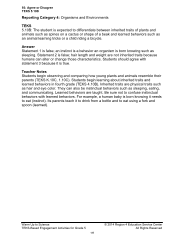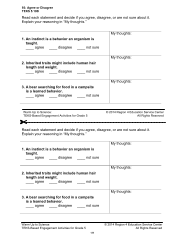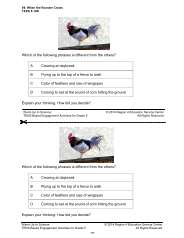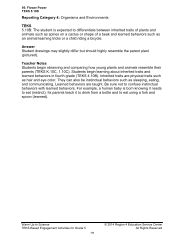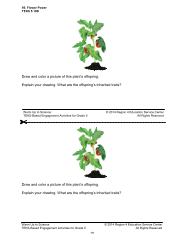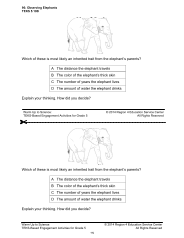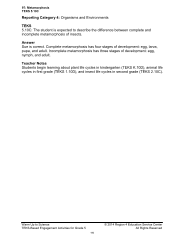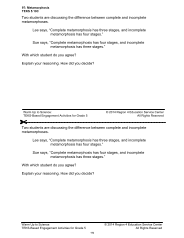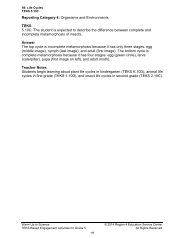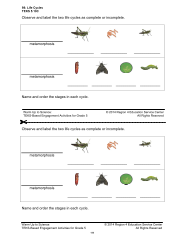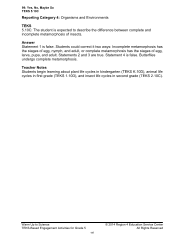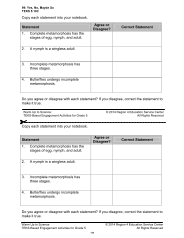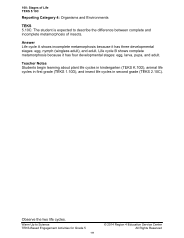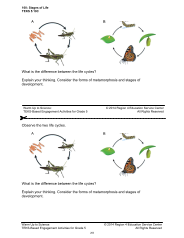Product Overview
Warm
Up to Science offers
student-centered engagement activities
for
immediate student
involvement.
Scientifically based
research supports
the use of
this form
of frequent
conceptual
exposure to enhance student
understanding.
Activities
are designed
to require five to 10 minutes
of
class
time and
are written with the cognitive rigor
demanded
by
the Texas
Essential Knowledge and Skills
(TEKS). Students must
use
critical
thinking
skills
as
they
are presented
with content-specific
activities
or
with visual stimuli, including
charts,
graphs,
and tables. Each activity
may
be used as
an
engagement
for
a new
lesson, as
a
method to
enhance
retention,
and as a means
to
support
State of Texas
Assessment
of
Academic
Readiness
(STAAR
) preparation.
Activities
are grouped by
STAAR strands and
sequenced by
specific
TEKS and
student
expectations.
Warm
Up to Science is presented
in an even-odd page format.
The even-numbered pages
include
activity
answer
keys and
supportive teacher
notes.
The odd-numbered
pages
present
specific
student activities
that are easily
photocopied.
Use a
photocopy
setting
to reproduce activities
with graphics
or
photographs.
The digital
version of Warm
Up to Science is
presented in the opposite order
of the print version. The
student
page comes
before
the teacher
page. This
design lessens the
chances
of
students
seeing answers
first.
After
students
work
through the activity,
the
teacher
can
easily
advance to the next
screen for
students
to self-check
their
work
if
desired.
Why Begin Class with A Warm-Up?
Warm
Up to Science incorporates
instructional
strategies
that
have been scientifically
proven to enhance student
achievement.
Some examples of
these effective instructional
strategies
identified in research focus
on the teacher’s
ability
to set
high
expectations for
students,
activate prior
knowledge,
provide feedback
that
reinforces
learning,
and
allow
for
recognition of effort.
In this type of
learning environment,
students will
have the opportunity
to
similarities
and
differences,
and critical
thinking
skills,
and
nonlinguistic stimuli.
Warm
Up to Science activities
are designed to involve students
in critical
thinking
processes.
The activities
focus on items
that
are content-specific
or items
with visual
stimuli,
including
charts,
graphs, and
tables.
Activities
are written to be
brief
and targeted
and can be used as formative assessment tools
to gauge students’
comprehension of a concept. The activities
require only
five
to 10 minutes
of
class
time.


























































































































































































































































































